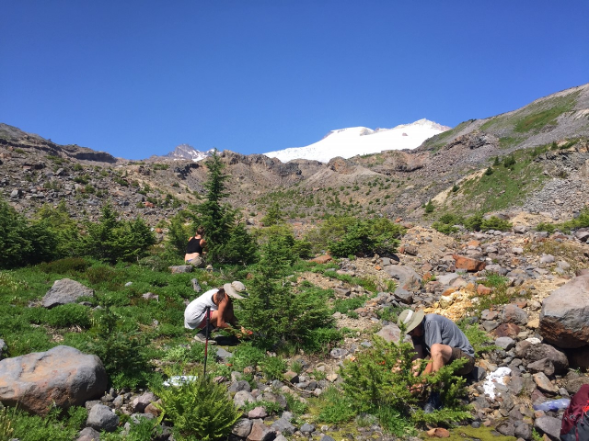The College of the Environment Capstone Courses

Senior Capstones for 2023-24
| Capstone Course Name | Credits | Quarter | Tentative Schedule | |
| ESCI 431 Watershed Biogeochem-WP3 | 5 | S24 | PQ ESCI 325 & ESCI 361 or ENVS 327; S24 MWF 12-1 pm & M 1-5 pm | |
| ESCI 454 Sci-Management Contaminated Sites (SMoCS) II | 4 | S24 | PQ ESCI 453 (W); S24 TR 12-2 | |
| ESCI 470 Ecological Restoration I | 5 | F24 | Offered every other even-number year. Not offered Fall 2023 | |
| ESCI 490 Env. Risk Assess-WP3 | 4 | S24 | Sr Status; S24 T/r 2-4 | |
| ESCI 491 Oceanography of Salish Sea | 4 | FWS | PQ: 1 from: ESCI 204, 321, 393; or MACS 303; F23-S24 TR 10-12 | |
| ESCI 493 Env. Impact Assess -WP3 | 5 | W24 | Sr Status, OV; W24 MWF 1-2:20 | |
| ESCI 494 Marine Conservation-WP2 | 5 | WS | W24 TR 2-3:15 pm &W 1-4; S24 2-3:15 &M 11-2 | |
| ESCI 497H Dynamics of Flow in Oceans, Rivers, Lakes | 5 | S24 | TR 2-5; PQ PHYS 114 or 161, MATH 124, or ESCI 342 | |
| ENVS 414 Editing the Planet Magazine | 5 | FWS | MW 2-4 pm Have to be selected | |
| ESCI 454 Sci-Management Contaminated Sites (SMoCS) II | 3 | S24 | T 12-2 & Thu 12-1 | |
| ENVS 429 Pyrogeography | 4 | W24 | TR 10-12 | |
| ENVS 430 Borderlands | 4 | W24 | WF 2-4, PQ 1 course from C/Am 200, 331; ENVS 303, 331 or 332, 342; ENVS/ENRG 350, ESCI 330, UEPP 343, 350 | |
| ENVS 466 Greening Business | 5 | S24 | May sub MGMT 466 TR 12-2 pm Business sustainability majors register first for MGMT 466 | |
| ENVS 491 Env. Communications | 5 | F23 | F23 TR 2-4 | |
| ENVS 493 Env. Impact Assess-WP3 | 5 | S24 | Not offered? | |
| UEPP 410 Agroecology | 4 | F23 | Fri 11-4:50; Sr Status; OV | |
| UEPP 474 Planning for Sustain Communities | 4 | S24 | TR-2-4, PQ UEPP 261 and 360 | |
| UEPP 493 Env. Impact Assess-WP3 | 5 | S24 | May be cancelled in S24 | |
Capstone Goals
To provide a real world problem identification and solution driven experience.
To provide an opportunity to work collaboratively in small groups with other students.
To provide an opportunity to work with students from different disciplines, reflecting the reality of the work world.
To integrate skills and knowledge gained from previous courses and experiences.
To practice the full complement of communication skills, including written reports and platform presentations.
Capstone Course Methods
Capstone courses should use the methods of experiential learning.
Students work in small groups and participate in the organizational and decision-making process required to accomplish tasks requiring a variety of expertise.
The learning processes should include reflection and evaluation.
Written and oral presentation of results to audiences outside the classroom.
Capstone Course Content
Tied to real-world problems
Current topics and problems
Interdisciplinary and multidisciplinary